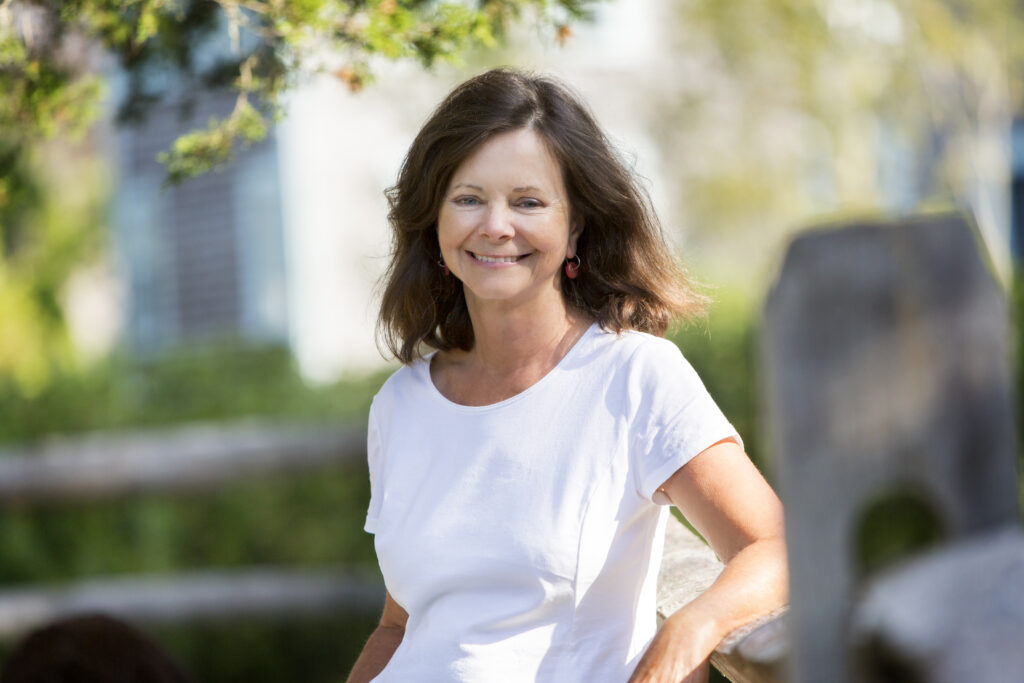
The Writing Life
The bookshelves of my Australian childhood were garrisoned by foreign troops, filled with stories by faraway English people who wrote of things I couldn’t see or touch or know: A.A. Milne, Enid Blyton, C.S. Lewis; The Wind in the Willows, The Secret Garden, The Snow Goose. These were good books, but they came between me and my country. Australia had been an independent nation since 1901, but in the 1960s, my imagination was still a British colony.
The characters in my childhood books built their tree houses in reddening rowan trees; they did not scramble up scribbly gums. I read names of flowers I had never seen, but I didn’t know what to call the tiny chrome-yellow blooms that flecked the bushland around my grandmother’s house. My mind lived in a cold, Anglican place while my body lived in a hot, Roman Catholic one. Once, at an aunt’s burial, I remember shifting my weight from foot to foot as the burning red clay melted the soles of my shoes, and being struck by the massive irrelevance to Australian experience of an expression like “cold as the grave.”
The real world of my 1960s Sydney childhood-the sweaty, salt-tanged summer days when the smell of distant bush fires mingled with the car exhaust of suburban Sydney-was not set down between any hard covers, at least none that made it to my bedtime-story hour. None of my tartan-skirted heroines played, as I did, amid the rich stink of Parramatta River mangroves. As I felt the warm, silky mud rising between my toes, I somehow knew that those girls, in their lisle stockings and patent-leather shoes, would have been disgusted.
I did find it difficult to resonate with some of the characters though. Mainly because I did not read of my own world. It took me a very long time to learn how much I loved it. There was, in post-World War II Australia, a lingering sense of inferiority, fed by the man who led the country, an Anglophile prime minister, Robert Menzies, who lived for his trips to Buckingham Palace and wrote in his journal on the way home that “a sick feeling of repugnance grows in me as I near Australia.”
When I went to college, it was to the Gothic-towered University of Sydney, an institution that signaled its aim of aping Oxford and Cambridge with a Latin motto that roughly translated as “Same Place, Different Skies”; its English department didn’t establish a chair of Australian literature until the 1960s. When I studied the novels of our Nobel Prize winner, Patrick White, I closed his books dismayed by his patrician contempt for ordinary, suburban Australians.
The history, the noises of revolution, Civil War and Restoration -I knew that, too, much better than I knew the details of my own country’s past. And as the book took shape under my hands, I was, like a sufferer from literary Stockholm syndrome, suddenly and profoundly grateful to my cultural captors.
One day, I hope to write an Australian novel. But I now know I will have to work for it. Many years ago, I spent a week rafting Tasmania’s Franklin River, which runs wild and swift from its mountain source until it joins the wide Gordon for a brief run to the sea. We were striking camp near the end of the journey when one of our guides came out of the dark rain forest with a half-dozen leaves in his hand. “I thought you might like to know what’s growing here,” he said, turning over the glossy spear of native laurel, a fern-like frond of Huon pine, the serrated leaf of celery top, the fragrant leatherwood. After that, the trees weren’t just “bush” any more-I knew each as an individual and so could see it clearly. The guide, Geoffrey Lea, seemed as magical as Adam to me that day, naming creation. He and I had grown up differently: he had grown up as an Australian.
I still have the leaves that Geoff picked long ago by the Franklin, sere and sapless now, pressed in the pages of my dictionary. I keep them there so that I will see them almost every day. They remind me that if I ever want to write of my own country, I will have to learn it, like a foreigner, like a migrant, leaf by leaf, from seed to blossom to bough.
Geraldine Brooks
The Washington Post
Copyright 2001, The Washington Post Co. All Rights Reserved